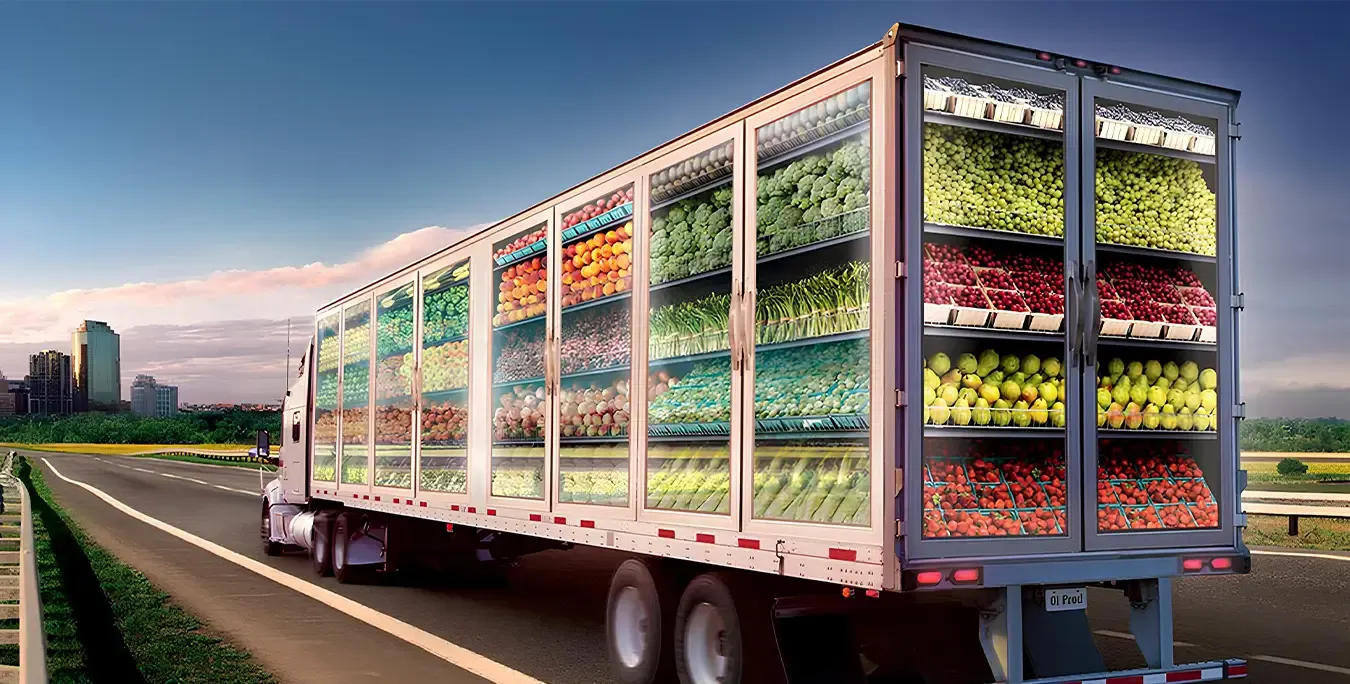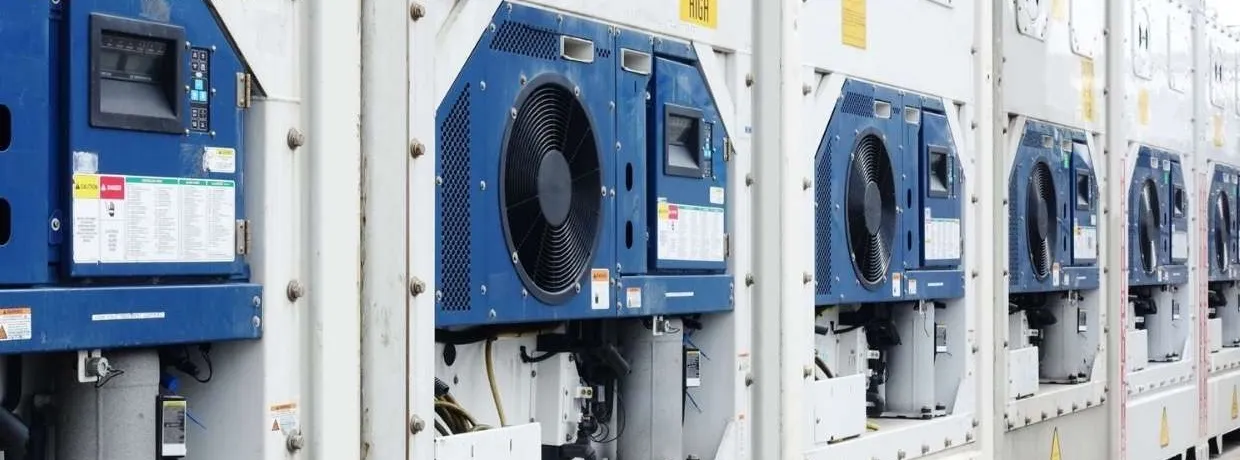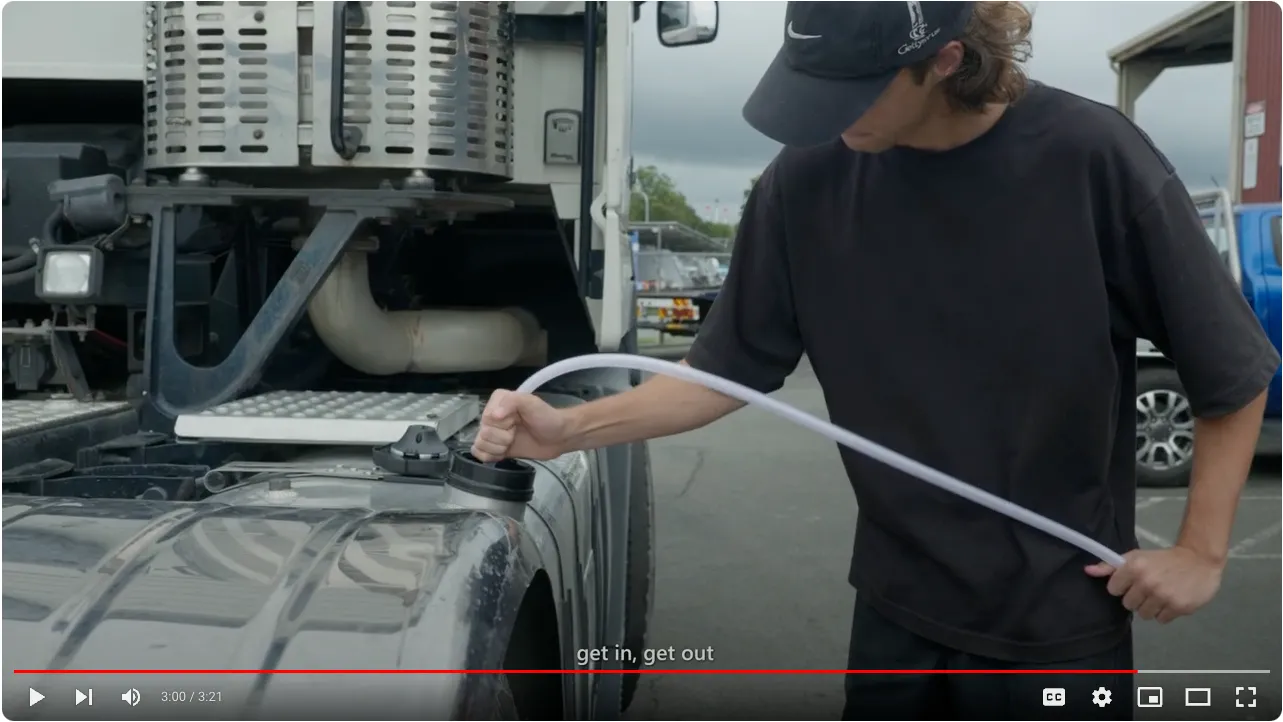
Refrigerated Transport: Security and Maintenance Challenges
- David
- November 19, 2024
- 04 Mins read
Understanding Refrigerated Transport in Australia
Refrigerated transport is a critical part of Australia’s supply chain, ensuring that perishable goods like fresh produce, dairy, seafood, and pharmaceuticals reach consumers safely and at the highest quality. Given the country’s vast distances, often extreme climates, and remote locations, maintaining precise temperature control during long hauls is essential to prevent spoilage and ensure food safety.
Specialised vehicles with advanced refrigeration systems keep these goods within specific temperature ranges, whether chilled or frozen. However, with the added operational complexity and cost of refrigerated transport, Australian logistics companies face unique challenges—most notably security and maintenance.
One pressing issue in this sector is fuel theft. Refrigerated vehicles are fuel-intensive due to the need to power both the truck’s engine and the refrigeration unit, making fuel a significant expense for these companies. Fuel theft not only impacts budgets but also compromises the integrity of transported goods, increasing the risk of spoilage.

High Value Cargo - sourced Nov 2024 - no ownership claimed
Issues and Losses Caused by Fuel Theft in Refrigerated Transport
The impact of fuel theft on refrigerated transport companies goes beyond financial losses. Here are some of the key challenges and setbacks that arise from fuel theft:
- Increased Operational Costs: Fuel theft translates to a direct loss, which can add up significantly for companies with large fleets. Each litre of fuel stolen must be replaced, straining budgets and potentially leading to increased costs for consumers.
- Disrupted Delivery Schedules: When fuel is stolen, vehicles can run out of power unexpectedly, disrupting delivery schedules. This is particularly damaging for refrigerated transport companies, where delays risk spoiling the cargo, leading to financial losses and damaging relationships with clients.
- Compromised Product Integrity: When fuel for refrigeration units is stolen, temperature control is compromised, which can result in spoilage. Goods such as meat, dairy, and pharmaceuticals need precise temperature maintenance to remain viable. A single instance of temperature loss due to fuel theft can lead to the rejection of entire shipments.
- Additional Maintenance and Repair Costs: Fuel theft can cause damage to the vehicle, as thieves often tamper with fuel lines or fuel caps, which require costly repairs. Repeated theft can lead to further vehicle wear and tear, ultimately shortening the lifespan of fleet assets.
- Insurance and Liability Issues: Incidents of fuel theft increase insurance premiums and can result in higher deductibles or policy limitations, impacting the financial stability of refrigerated transport businesses.
- Environmental Impact: In some cases, stolen fuel can lead to spills and environmental damage. Not only does this harm the local ecosystem, but it also adds to the legal and regulatory pressures on transport companies.

Refrigerated Containers - sourced Nov 2024 - no ownership claimed
How Fuellox Helps Secure Refrigerated Transport
At Fuellox, we understand the critical role fuel management and security play in the refrigerated transport industry. Our solutions are designed to mitigate the risk of fuel theft, improve efficiency, and ultimately protect your bottom line. Here’s how our systems can benefit your business:
Fuel Tracking: Our fuel management systems allow companies to monitor fuel levels in real-time, making it easier to detect unusual drops in fuel, which could indicate theft. With continuous tracking, fleet managers can receive instant alerts if fuel levels fall unexpectedly, enabling immediate action.
Anti-Theft Devices: Our anti-syphoning devices prevent unauthorized access to fuel tanks, reducing the risk of fuel theft. These devices make it significantly harder for thieves to tamper with the fuel system, protecting both the main engine and refrigeration unit fuel sources.
Comprehensive Reporting: Fuellox offers detailed insights and reports, allowing fleet managers to understand patterns in fuel usage, identify areas for efficiency improvement, and pinpoint security weaknesses in the fleet.
Meet Colin from CCA Transport

Are you at risk of Fuel Theft?
Complete our quantitative risk assessment to learn if your business is at risk of Fuel Theft. You will receive a risk rating and a guide of how to minimise risk and commercial loss.